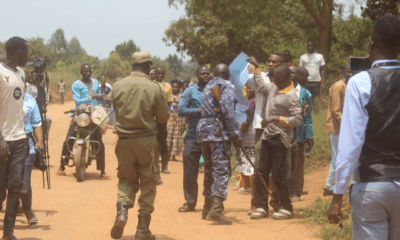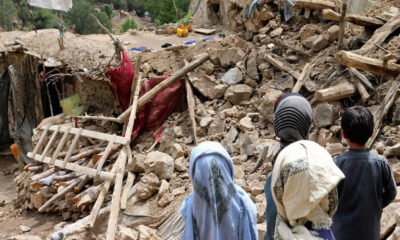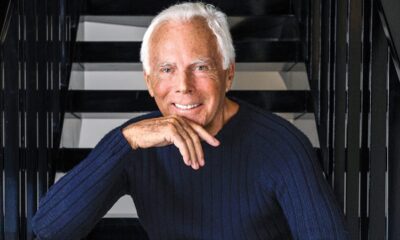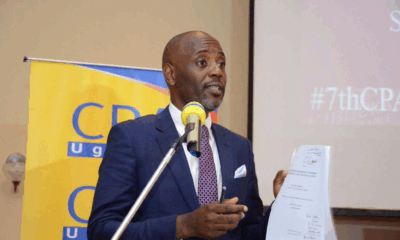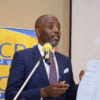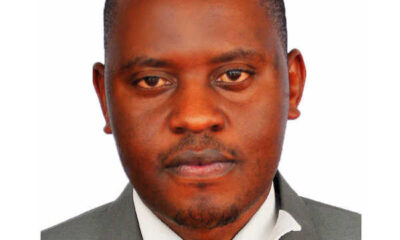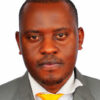News
Lawyers, Medics weigh in on CID’s plan to arrest private healthcare givers

Paramount Hospital near Makerere University has attracted criticism from sections of the for allegedly withholding a dead body when relatives of the COVID patient failed to pay the hospital bill
The Police Criminal Investigations directorate (CID) this week ordered all it’s Regional, District and Divisional officers to take interest in investigating and apprehending private health care providers who withhold dead bodies before relatives pay full medical bills.
CID Deputy Director Paul Katto Tumuhimbise, also directed his officers to investigate the often exaggerated costs slapped on families of either the deceased or recovered / referred patients.
Tumuhimbise’s call comes against public outcry that private health practitioners were engaging in unlawful, unethical and uncouth behaviour, especially during the COVID-19 outbreak, to levy crippling charges on patients and their families.
This year especially at the height of the pandemic, families reported they had been slapped with bills going as high as UGX 300 million to manage the patient.
Complaints arose that families had been forced to suffer multiple phases trauma including losing their bread winners but also being forced to sell off family property in order to access the dead body and also clear the hospital bill.
Now, however, perhaps after the dust appears to have settled, the law enforcement agency is revealing its claws.
Afande Tumuhimbise reiterated that the practice of holding dead bodies by private health providers is illegal as stipulated by Uganda’s Penal Code Act.
“You are therefore directed to take interest in investigating and apprehending private health care providers who continue to break the law by committing offences like wrongful confinement, hindering burial of the dead that are closely stipulated in the Penal Code.” said Tumuhimbise in a Sept. 14 circular to all CID heads across the country.
Tumuhimbise said that whereas private health providers are crucial in supporting and supplementing government hospitals, they are mandated under the law to demand reasonable charges for the services they offer.
“They are further entitled to sue for and recover their costs in full in any court of competent jurisdiction,” he said.
Tumuhimbise says the practice of overcharging patients and retaining them plus dead bodies is not only illegal but inhuman and this should be stopped.
In June this year, Private healthcare providers while meeting Col. Edith Nakalema who heads the State House Anti-Corruption Unit blamed the high charges which became more pronounced during the surge in COVID-19 cases on increased cost of providing care due to high utility bills and high prices for sundries such as PPE, some drugs and oxygen.
In the meeting, Owners of private health facilities complained about the cost of personal protective equipment (PPEs), they asked government to help them set up oxygen plants in health facilities and waive some of the taxes.
They also requested ventilators and a special fund where they can borrow at a low interest rate.
Grace Ssali Kiwanuka, the Executive Director of Uganda HealthCare Federation, the umbrella body for private players in health sector in the country, said among the issues that private hospitals will work to iron out included “reviewing costs and bills, areas of concession on oxygen, daily payment for health workers” which are contributing to the high charges for treatment.
In the meeting, Nakalema revealed that in the past few days, they had received 496 complaints about high charges in different hospitals, and the President assigned her to do an audit of the cases and coordinate efforts to rectify the mess.
At the moment, the country reported reports of patients or dead bodies being held by hospitals as security for payment of outstanding medical bills, this turned the Covid 19 pandemic into a real horror.
Matters were made worse by reports that some patients were denied emergency medical treatment which includes oxygen therapy or support because they cannot make an advance payment. This offends Section 8 of the Uganda Medical and Dental Practitioners Council Code 2013 which provides that a practitioner shall not deny emergency treatment or health care to a patient.
Lawyer Fred Muwema, suggests however that the law empowers private healthcare providers to levy a reasonable charge and make a profit.
”It is the Medical and Dental Practitioner’s Act in Section 42 thereof which grants a medical practitioner the right to demand reasonable charges for any medical services rendered. The import of this provision is that any medical charges levied must be shown to be reasonably incurred within the prevailing market conditions. The law envisages that the medical service provider must not operate at a loss. They must recoup the input cost of providing the service and remain with a reasonable mark up to sustain and grow the business. The law may view it as extortion and profiteering if some private hospitals charge Shs5 million for the same Covid 19 treatment offered by public hospitals in the same market,” Muwema says.
He says retaining the dead body hinders the burial of the deceased and this amounts to a criminal offence under Section 121 of the Penal Code Act.
“This is punishable on conviction by a custodial sentence of 2 years in prison. Hospitals must also realize that they are not gazetted detention centres under the law to enable them legally detain any wrong doers whether dead or alive. Hospitals may attract legal liability for false imprisonment and unlawful restriction of a person’s liberty if they do not desist from detaining indigent patients who are unable to pay their bills at the material time of asking or dead bodies which are not even aware of the bills they have left behind,”Muwema notes.
Comments





